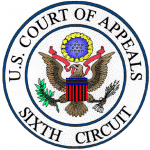 On rehearing, the California Court of Appeal has reaffirmed its earlier (vacated) decision and reversed the decision of the Franchise Tax Board (“FTB”) in Gillette v. Franchise Tax Board. The Court of Appeal concluded that the 1993 amendment that attempted to repeal the Multistate Tax Compact (MTC) election was invalid and the taxpayer could elect to apportion under the three-factor MTC formula.
On rehearing, the California Court of Appeal has reaffirmed its earlier (vacated) decision and reversed the decision of the Franchise Tax Board (“FTB”) in Gillette v. Franchise Tax Board. The Court of Appeal concluded that the 1993 amendment that attempted to repeal the Multistate Tax Compact (MTC) election was invalid and the taxpayer could elect to apportion under the three-factor MTC formula.
On July 24, 2012, the Court of Appeal released an opinion and decision that reversed the decision of the FTB. The FTB dismissed the taxpayer’s request for refund based on an election to apportion income according to the three-factor Multistate Tax Compact (MTC) formula. On August 9, 2012, the Court of Appeal vacated its opinion and decision and ordered a rehearing. The rehearing was held and the Court of Appeal is standing by its earlier decision: the FTB construction is invalid, the MTC election was not repealed, and the taxpayers could elect to apportion income under the three-factor MTC method.
The opinion after rehearing is substantially and substantively similar to the original opinion issued by the Court of Appeal. The following minor additions to the new opinion are notable. The new opinion notes the enactment of California Senate Bill No. 1015 on June 27, 2012 (which repealed the MTC election) and makes clear that the effect or validity of this later enacted statute was not before the court. It also recognizes that it was the “clear import” of the legislature to override the MTC election and mandate exclusive use of the double-weighted sales formula but that such a construction is invalid. Finally, the court strengthened the language in its conclusion:
The Legislature did not repeal, amend or reenact any part of the Compact at the time, and thus neither the public nor the legislators had adequate notice that the intent of this amendment was to eviscerate former section 38006.
Read the opinion on rehearing here:
Gillette v. FTB (Rehearing) 10.2.12
If you’d like to compare this opinion with the original, vacated, opinion please visit our earlier post on the order for rehearing.
 Late last week, the IRS filed a petition for rehearing en banc with the 6th Circuit Court of Appeals in U.S. v. Quality Stores. As we originally reported, the three judge panel that heard the case decided in favor of the taxpayers, triggering a potential refund opportunity for many corporate taxpayers.
Late last week, the IRS filed a petition for rehearing en banc with the 6th Circuit Court of Appeals in U.S. v. Quality Stores. As we originally reported, the three judge panel that heard the case decided in favor of the taxpayers, triggering a potential refund opportunity for many corporate taxpayers.


